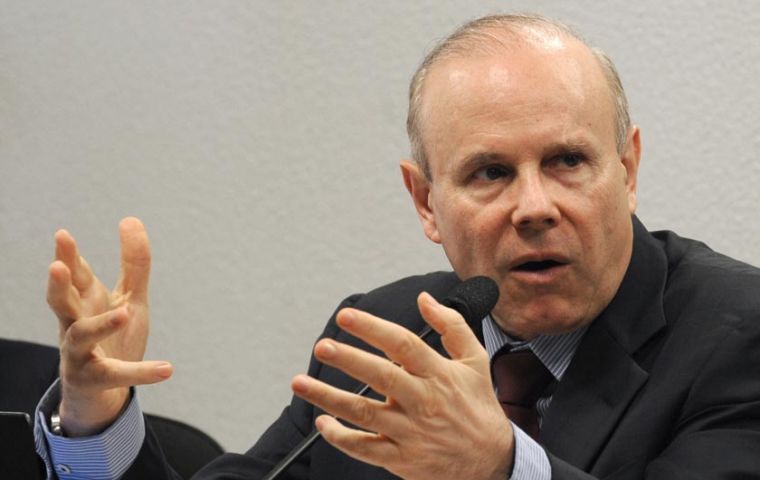MercoPress. South Atlantic News Agency
As China tries to cool economy asset bubbles fears emerge in Brazil
 Nevertheless Guido Mantega remains unimpressed and enthusiastic about 2010 growth
Nevertheless Guido Mantega remains unimpressed and enthusiastic about 2010 growth Brazil, Latinamerica’s largest economy is feeling the consequences of China’s moves to rein in an overheated economy and global fears of asset bubbles in attractive fast developing economies. The strongest warning came this week from the Organization for Economic Cooperation and Development, OECD.
“There's... a danger of asset bubbles in places like Brazil or places like India and we should be careful about that -- that is a real threat,” OECD chief, Angel Gurria, told CNBC television last Thursday.
His words came as investors appeared to also start to realize the risk, pulling more than 500 million US dollars out of the Sao Paulo stock market in January. The Bovespa index slumped 4.7% over the month, a significant turnaround for a market that had been strongly rising on the recovery in the global economic downturn.
The Real, Brazil’s currency also showed its vulnerability having reached its lowest point against the US dollar since September 2, 2009, after a nine-day losing streak that has reduced its value to 1.885 Real to the greenback. The decline undercut some of the gains made last year, when the Real rose a stunning 33% against the dollar.
However Brazilian officials are unconcerned at the sudden reverse arguing that a dearer US dollar helps competition and promote the country’s exports.
“We're not worried with this because we have big (dollar) reserves” Finance Minister, Guido Mantega, said Friday, according to the Wesbite of newspaper O Globo. “With a devaluation of the Real, exports become more competitive.”
In the recent Davos Economic Forum Mantega went as far as to announce that the Brazilian economy was sufficiently robust as to begin withdrawing stimuli measures.
“The Brazilian economy has sustainable growth and inflation risks are limited”, said Mantega. The Brazilian government is also forecasting economic growth of 5.2% this year after effectively zero percent growth last year, with consumers and exports driving renewed expansion.
But some of the tensions seen in Brazil's investment climate can be tracked to China, its biggest trading partner (42 billion US dollars last year), which has tightened monetary policy in an attempt to cool the economy and prevent property and stock market bubbles from exploding. Beijing also announced the restructuring of those industries which have excess capacity such as iron and steel.
If such a scenario were to prosper it would impact Brazil's exports, particularly its metals and agricultural products and at global level commodities’ prices.
However 2010 is a special year for Brazil since next October the successor of eight years of popular President Lula da Silva will be elected, and the country is preparing to host the World Cup in 2014 and the Olympic Games in 2016.




Top Comments
Disclaimer & comment rulesCommenting for this story is now closed.
If you have a Facebook account, become a fan and comment on our Facebook Page!